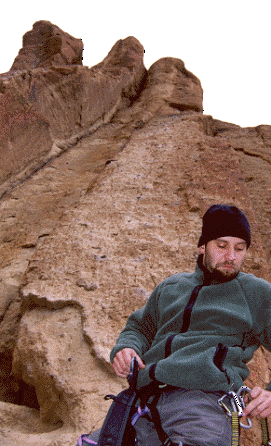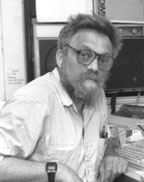
Frank Bruggeman, Faculty of Earth and Life Sciences, Vrije Universiteit Amsterdam. He has focused on the development of theoretical tools to analyze experimental or computer-generated cellular behavior. He has pursued modularity, modular response analysis, robustness, regulation analysis, network inference from experimental data, principles of signal transduction and kinetic modeling of biochemical reaction networks.
F. C. Boogerd, F. J. Bruggeman, R. C. Richardson, A. Stephan and H. V. Westerhoff (2005). Emergence and Its Place in Nature: A Case Study of Biochemical Networks. Synthese, 145, 131-164
F. J. Bruggeman, H. V. Westerhoff , F. C. Boogerd (2002). BioComplexity: a pluralist research strategy is necessary for a mechanistic explanation of the "live" state. Philosophical Psychology, 15, 411-440.

Jay Odenbaugh, Philosophy, Lewis and Clark College has focused on modeling in ecology, especially the use of models in contexts in which experiments are not possible. Noting the highly idealized character of models, he considers how they can be evaluated and used.
Odenbaugh, J. (in press). The Strategy of “The Strategy of Model Building in Population Biology Biology and Philosophy.
Odenbaugh, J. (in press). Models in Blackwell Companion to the Philosophy of Biology , Blackwell
Odenbaugh, J. (2005). Idealized, Inaccurate but Successful: A Pragmatic Approach to Evaluating Models in Theoretical Ecology. Biology and Philosophy, 20, 231-255.

William Wimsatt, Philosophy and Committee on Evolutionary Biology, University of Chicago , has both developed his own modeling tools and programs and addressed fundamental epistemic issues about modeling, including the use of false assumptions in modeling. His models of generative entrenchment have become influential in the new field of developmental systems theory.
Wimsatt, W. C., 1987. False models as means to truer theories. In: M. Nitecki and A. Hoffman, eds., Neutral Models in Biology. London : Oxford University Press, pp. 23-55.
Wimssatt, W. C., 2002. Using false models to elaborate
constraints on processes:
Blending inheritance in organic
and cultural evolution. Philosophy of Science, 69
Wimsatt, W. C. and Schank, J. C. (2004). Generative entrenchment, modularity and evolvability: When genic selection meets the whole organism.In G. Schlosser and G Wagner, eds., Modularity in Development and Evolution, Chicago : U Chicago Press, pp. 359-394.